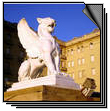Culture of Uruguay
Some main aspects of Uruguay's culture and traditions.
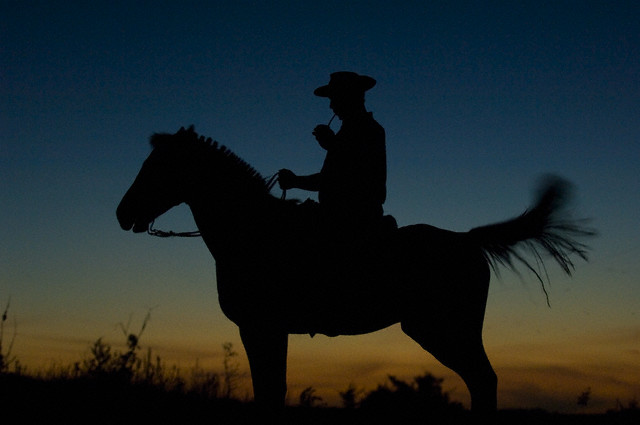
Uruguay has a strong sense of nationalistic culture, despite its small size. The contribution of its alternating conquerors and diverse immigrants has resulted in native traditions that integrate this diversity. Uruguay has centuries old remains, fortresses of the colonial era. Its cities have a rich architectural heritage and an impressive number of writers, artists, and musicians. Here are some cultural traditions unique to Uruguay:
Food
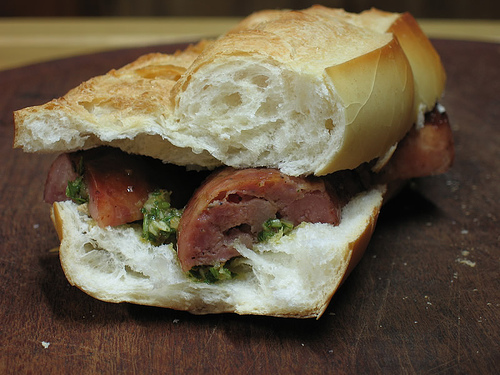 Some
of the typical Uruguayan food
and dishes are part of the country's traditions and an element which
often unites Uruguayans no matter in what place of the world they are. This
way, one of the main aspects Uruguayans miss while being away from their
country are these typical meals
and flavors which are not easy to find at other places. The national dish
and maybe the most worldwide known Uruguay food is the "asado".
(read more...)
Some
of the typical Uruguayan food
and dishes are part of the country's traditions and an element which
often unites Uruguayans no matter in what place of the world they are. This
way, one of the main aspects Uruguayans miss while being away from their
country are these typical meals
and flavors which are not easy to find at other places. The national dish
and maybe the most worldwide known Uruguay food is the "asado".
(read more...)
Family
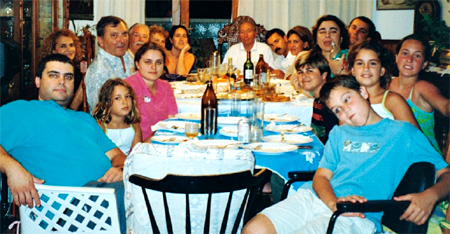 To
the Uruguayos, Family is very
important, and is the central part of daily life. Christmas, New Year's,
King's Day, and birthdays are all reasons for families to get together,
eat BBQ, drink a bit, and share each other's company. But it doesn't stop
there. Sundays are huge family days, and the majority of people have a large
lunch each Sunday at the house of their parents or grandparents. It is a
natural part of daily life that they meet on these days, and families genuinely
enjoy each other's company. (read
more...)
To
the Uruguayos, Family is very
important, and is the central part of daily life. Christmas, New Year's,
King's Day, and birthdays are all reasons for families to get together,
eat BBQ, drink a bit, and share each other's company. But it doesn't stop
there. Sundays are huge family days, and the majority of people have a large
lunch each Sunday at the house of their parents or grandparents. It is a
natural part of daily life that they meet on these days, and families genuinely
enjoy each other's company. (read
more...)
Asados
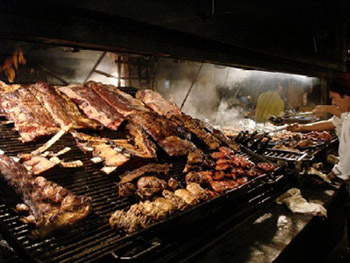 Asados
are social activities. It's a time consuming process, and while someone
is preparing the fire (el asador) everyone else gets to eat snacks, and
play cards. This Uruguayan food owes its magic not only due to the meal
itself, but to the way Uruguayans use to meet, cook it and eat it together,
many times playing "truco", a typical Uruguayan playing-cards
game. (Read more...)
Asados
are social activities. It's a time consuming process, and while someone
is preparing the fire (el asador) everyone else gets to eat snacks, and
play cards. This Uruguayan food owes its magic not only due to the meal
itself, but to the way Uruguayans use to meet, cook it and eat it together,
many times playing "truco", a typical Uruguayan playing-cards
game. (Read more...)
Mate
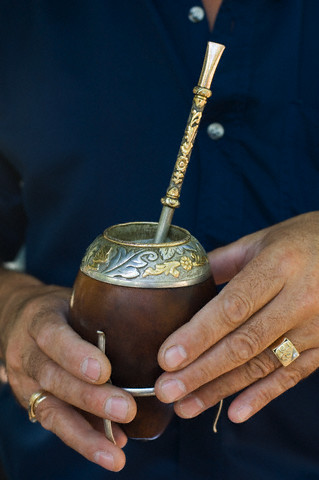 The
drinking of Mate (pronounced Mah-teh) in Uruguay is a cultural ritual which
is often shared with friends and family, and is a massive part of the culture
in Uruguay, comparable to the popularity of coffee drinking in the U.S.;
In Uruguay and Argentina it is common to see people walking around the streets
toting a mate and a thermos with hot water. People who drink yerba mate
do it as a social activity. Part of the new, more informal way of life in
Uruguay includes drinking Mate while on walks, sporting events, at work,
and is extremely popular among many student activities. (Read
more...)
The
drinking of Mate (pronounced Mah-teh) in Uruguay is a cultural ritual which
is often shared with friends and family, and is a massive part of the culture
in Uruguay, comparable to the popularity of coffee drinking in the U.S.;
In Uruguay and Argentina it is common to see people walking around the streets
toting a mate and a thermos with hot water. People who drink yerba mate
do it as a social activity. Part of the new, more informal way of life in
Uruguay includes drinking Mate while on walks, sporting events, at work,
and is extremely popular among many student activities. (Read
more...)
Gauchos
 Inland,
we find the culture of the gaucho,
the cowboys of South America. To this day, gauchos wear the same traditional
dress as generations ago. Complete with its own music and dance; gaucho
is about pride and dignity, individual integrity, and national identity.The
gaucho is intimately linked to the birth of the nation. His values and sense
of liberty were a determining factor in the fight for Uruguayan independence.
(Read more...)
Inland,
we find the culture of the gaucho,
the cowboys of South America. To this day, gauchos wear the same traditional
dress as generations ago. Complete with its own music and dance; gaucho
is about pride and dignity, individual integrity, and national identity.The
gaucho is intimately linked to the birth of the nation. His values and sense
of liberty were a determining factor in the fight for Uruguayan independence.
(Read more...)
Carnival
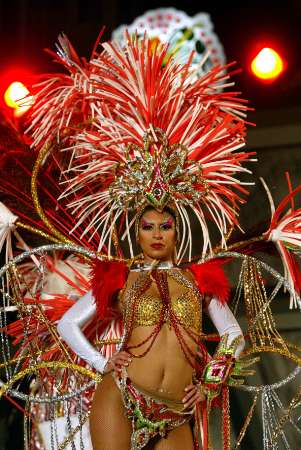 Uruguay
attaches a lot of importance to carnival and the origins are European and
African. During carnival in the times of the Spanish colony, African slaves
covered themselves with robes of vivid colors and walked through the streets
toward the city walls of Montevideo, where they were allowed to sing and
dance. The “Candombe” is derived from African rhythms performed by the Negro
slaves of the colony. (Read more...)
Uruguay
attaches a lot of importance to carnival and the origins are European and
African. During carnival in the times of the Spanish colony, African slaves
covered themselves with robes of vivid colors and walked through the streets
toward the city walls of Montevideo, where they were allowed to sing and
dance. The “Candombe” is derived from African rhythms performed by the Negro
slaves of the colony. (Read more...)
Tango
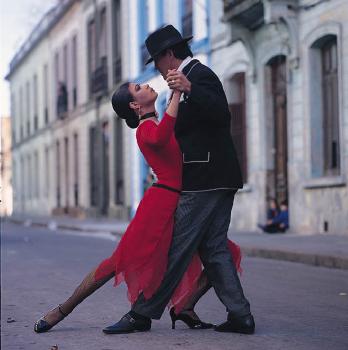 The tango has an entire
sub-culture centered on movement, music, and lyrics. Tango is love, hate,
and passion. Tango transforms one’s existential problems into pure energy
and joy. And in Uruguay, people love to Tango and they Tango well!
The tango has an entire
sub-culture centered on movement, music, and lyrics. Tango is love, hate,
and passion. Tango transforms one’s existential problems into pure energy
and joy. And in Uruguay, people love to Tango and they Tango well!
Football (Soccer)
Uruguay was the first football (Soccer) world champion ever. But did you also know that Uruguay won the world championship once more in 1950 in the enormous Maracaná stadium, in Brazil, where Uruguay won a historic match against Brazil 2:1? This mythical match is referred to as the Maracanazo and is part of the national myth of Uruguay.
Leave a Comment
|
